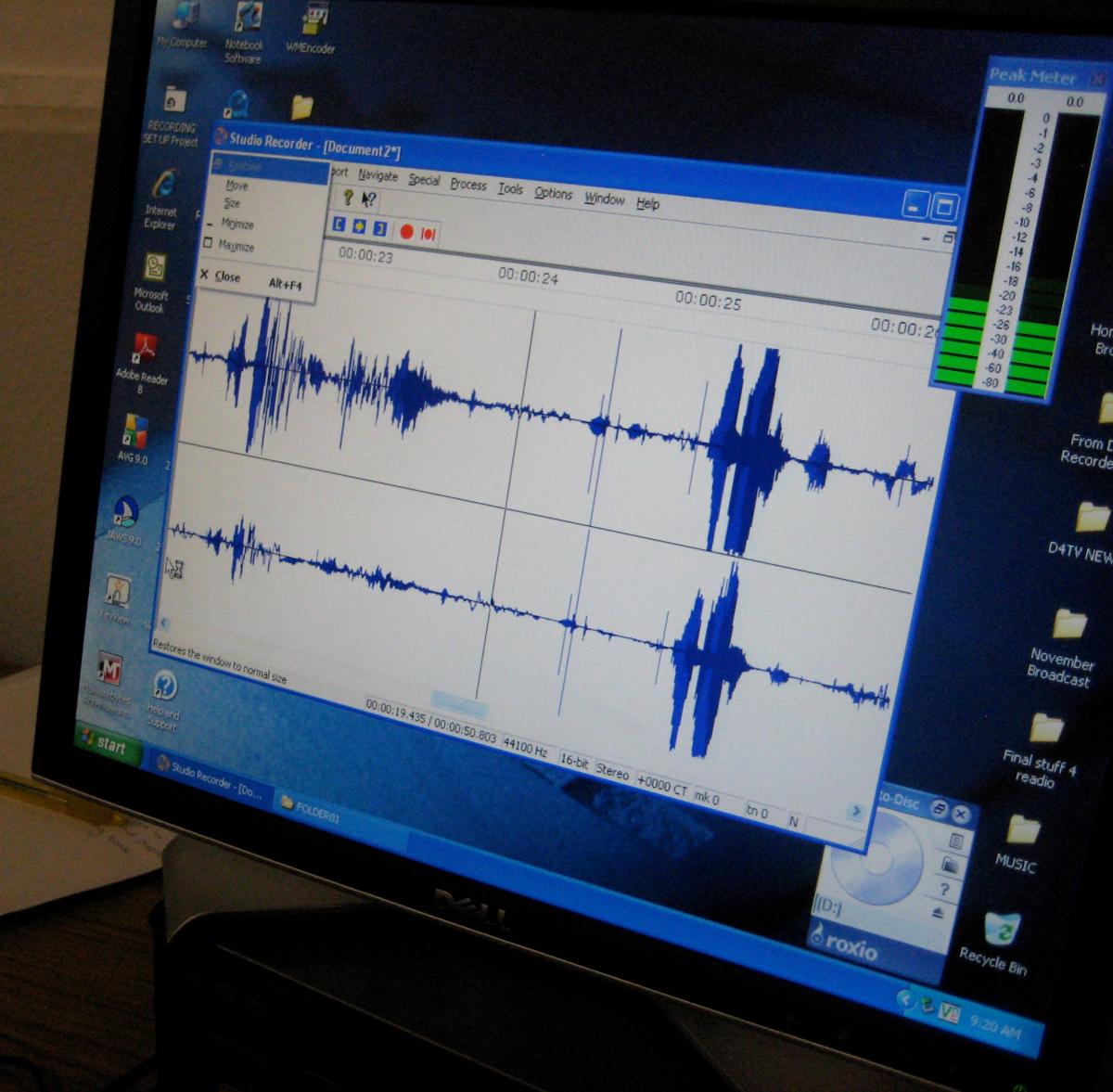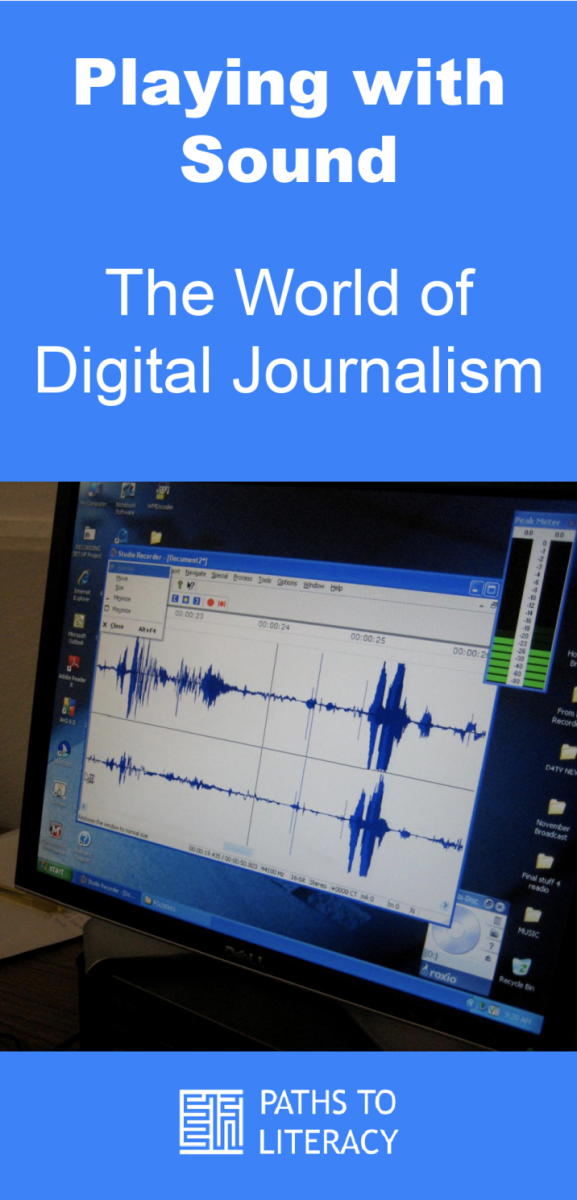Playing with Sound: The World of Digital Journalism
 Cut, paste, delete. It's really that simple.
Cut, paste, delete. It's really that simple.
Radio broadcasting for students who are blind or visually impaired might seem intimidating at first, but with user-friendly software called Studio Recorder from the American Printing House for the Blind (APH), this is a powerful tool for students to edit their own voice in the same way they would edit a print document.
Digital Journalism Class Objectives:
- Students will learn the history of audio/radio broadcasting including the First Amendment.
- Students will learn journalism skills such as what makes news, practice listening to radio news and comprehending the content, learning basic geography through world news, be able to set up an interview, write questions using the 5Ws and an H, record the interview, write a brief news story, record the story and include an actuality (sound clip) and edit extraneous sounds.
- Students will gain technical production skills and discern whether an item needs a music bed or a segue, choose appropriate themes, learn how to time the story and balance the information.
The original vision of a radio class was not to train students for a career in radio, but rather to foster and enhance basic reading, writing, organizing information and presenting information to a specific audience.
Skills that can be taught:
- Being able to stay on topic
- Articulation
- Public speaking skills
- Using a keyboard to start and stop recording
- Communication skills
- Writing skills
- Reading skills
- Stick-to-itivness -- multiple recordings
- Peer feedback
- Asking questions
- Listening to answers
- Organizing information
- Writing for a specific audience
- Using a microphone correctly
Equipment Needed
- A computer running Microsoft Windows 98 or later, including XP and Vista
- Microphone
- Studio Recorder software (available on Quota funds)
- Students
- Music
- Creativity
- Listeners
Benefits
- Communication skills
- Confidence
- Building community
- Students learn to ask questions
- Students learn the difference between fact and opinion
- Students become better consumers of media
- Students learn about public relations
- Students take an interest in the world around them
Challenges
- Equipment failure
- Patience with editing process
- Overcoming stereotypes
- Administrative support
- Cancelled interviews
- Dead-end leads
- Access to telephone and internet
Interested in learning more about our program? Listen to this story from Arizona Public Media.
Lesson Plans and Handouts
- Rules of Writing for the Ear
- What Is News?
- Sample Interview Set Up
- Digital Journalism News Worksheet
- Radio Vocabulary
Learn more about Studio Recorder from APH. (Available using Quota funds.)

